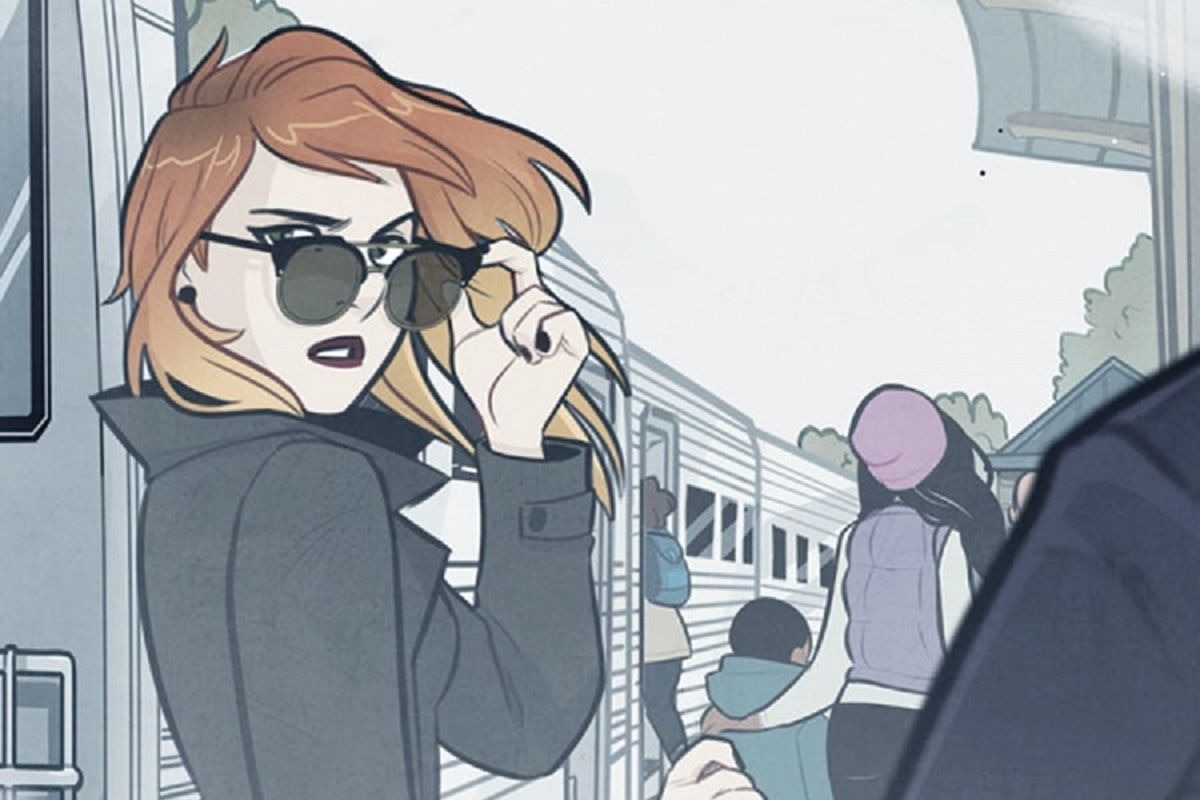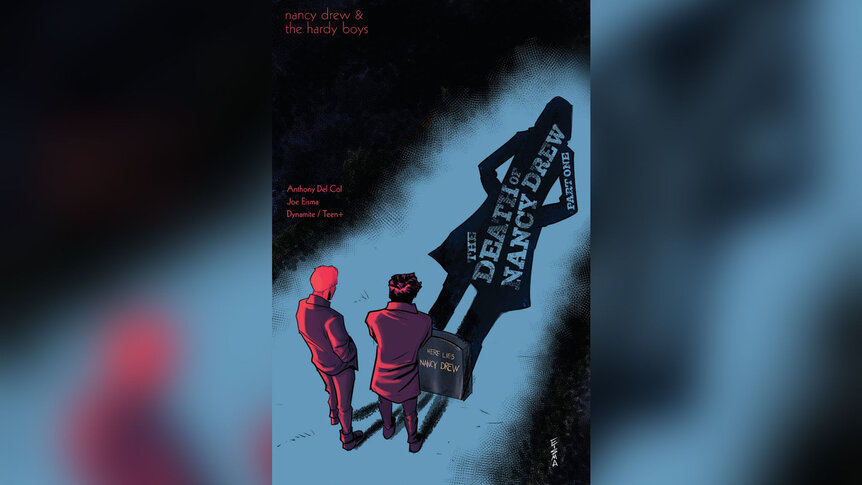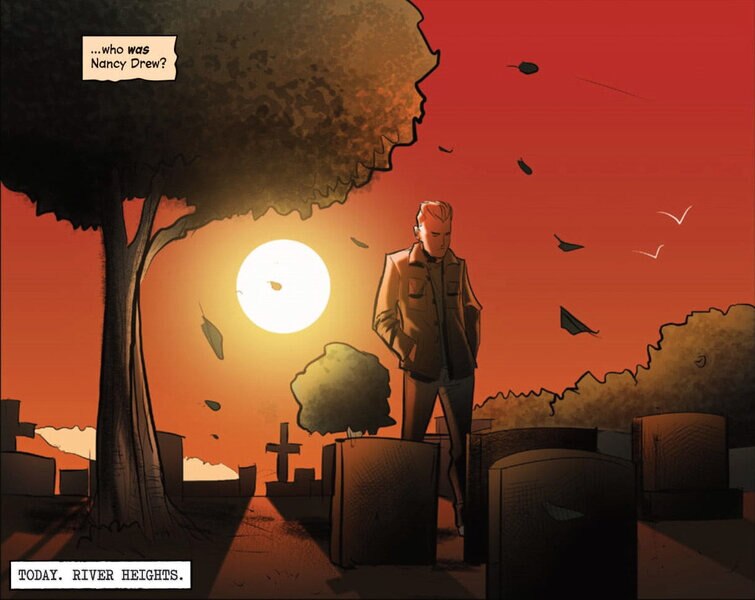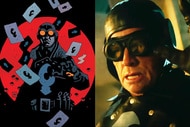Create a free profile to get unlimited access to exclusive videos, sweepstakes, and more!
Will the controversy over Who Killed Nancy Drew comic help or hurt the series?

Creating good, compelling stories is and will always be the toughest task in comics. However, I'm more convinced than ever that the promotion of said compelling stories is a close second on that list.
The controversy over an upcoming series, Nancy Drew & The Hardy Boys: The Death of Nancy Drew, published by Dynamite Entertainment, is yet another example of the pitfalls of the PR in the comics industry. The new series, written by Anthony Del Col and drawn by Joe Eisma, focuses on the Hardy Boys investigating the death of their fellow teen sleuth. The story generated major headlines and reactions last week, with quite a few of them on the negative side. Several people rightfully questioned the wisdom of marking the 90th anniversary of an iconic female character like Nancy Drew with a storyline (by a male creative team) that suggests she's been sidelined and that puts the spotlight on her two male detective pals.
I highly recommend my colleague Tricia Ennis' thoughtful and detailed explainer of why this story may also be a slight to Nancy's great supporting cast, people that have much longer history with Nancy than Frank and Joe Hardy.
[We don't know for sure that she's dead, but considering that at 90, Nancy Drew is as popular as she's ever been with, a recent film and CW television series, the odds are long that she's truly six feet under.]
Opinions are opinions, and everyone is entitled to them. We're living through the Golden Age of Hot Takes, so it's no surprise a lot of people have strong opinions on this news. Nancy Drew is a beloved literary character who has inspired generations of fans. But we would do well to remember, that no one has read this story yet. Without reading it, how can we possibly know what the story is about or its intentions? As a general rule, I try not to leap to conclusions and declare any story/film/TV show 'crap' or 'classic' until, you know, I've actually read/seen it. I feel that's a fairly solid rule to have when it comes to any creative endeavor. Creators deserve the benefit of the doubt.
Just imagine if social media existed back when Gerry Conway killed off Gwen Stacy in Amazing Spider-Man #121 or when Chris Claremont and John Byrne had Jean Grey killed in Uncanny X-Men #137? The blurbs previewing those comics would have cracked the internet and sent those creators running into fortified bunkers to escape angry fans carrying the proverbial pitchforks. Do fans have a right to be concerned about a Nancy Drew comic where the main character has been killed? Certainly. But why not take a breath and wait to see the entire story before determining if its screwed the pooch or not?
Then again, a headline that declares, "Who Killed Nancy Drew?" is essentially begging for an instant "Guilty" verdict in the court of social media. No doubt Dynamite knew this, and perhaps the company determined the exposure and heightened awareness of its new monthly series was worth getting shredded by angry fans. Someone more cynical may even suggest that sparking an outcry was the intention.
Regardless, people are talking about it. The New York Times and CNN both did stories on the reaction to the news that the female mystery-solver who has been hailed as a feminist role model was dead. That kind of publicity for any comic but especially one not published by Marvel or DC, is the kind you simply cannot buy. But is it worth it? Will it move the sales needle enough to justify angering so many loyal Nancy Drew fans who, in theory, are the people you want to reach with mainstream publicity such as a story in the Times or a major cable network?
The fact that comics have to resort to this type of PR is something that I don't believe is in the long-term interests of the industry. It almost seems as if publishers think the only way to really spark interest in their comics is through Outrage PR stratagems or to reveal the Big Hook of your story ahead of time. And that can backfire. If you want a recent example, look at the reaction to the twist in Batman #50, the supposed BatCat wedding issue, after it was revealed before the book hit comics shops.
Yes, it's nice to when your comic book trends on Twitter; Nancy Drew cracked the Top 5 last week. But when you've angered a significant part of your potential readership to the point that, even if they buy your comic, they're almost preconditioned to have a negative opinion of the story, can that really be called a PR win? I'm not sure that's in the best interest of Del Col and Eisma's story, or more importantly, the character of Nancy Drew.
I'm always interested in hearing what people think of the column. Find me on Twitter/Instagram/Facebook and let me know. Tell me what you're reading these days, too.
Behind the Panel is a video and audio series, as well. Our video series is chock-full of my in-depth interviews with amazing comic book creators. The Behind the Panel podcast is an audio documentary series that provides unique insight into your favorite creators and stories. Check 'em out, we think you'll enjoy them.
The views and opinions expressed in this article are the author's and do not necessarily reflect those of SYFY WIRE, SYFY, or NBCUniversal.



























